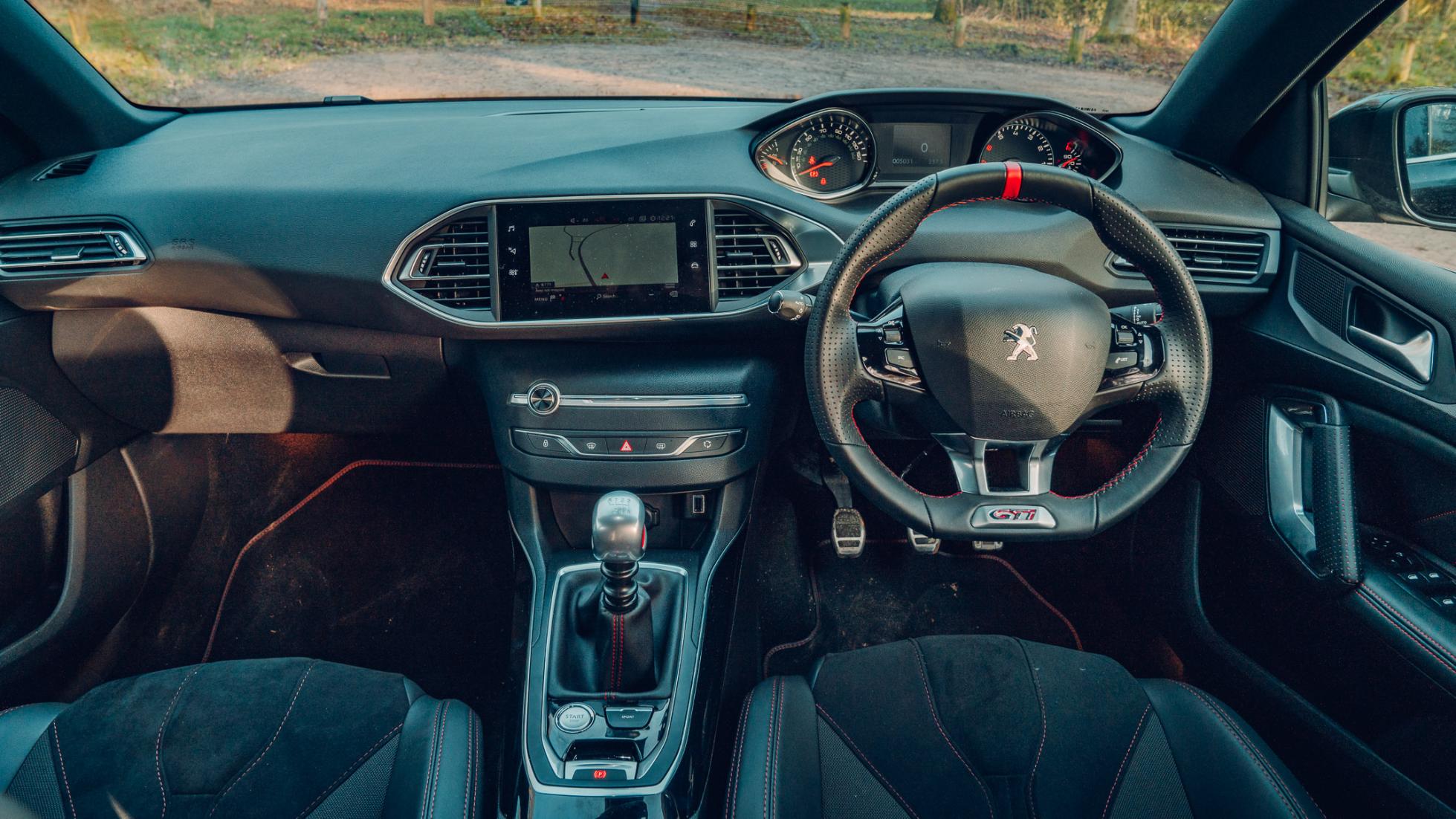
Driving
What is it like to drive?
It’s a hot hatch with a very senior spec. Its 1.6-litre four-cylinder engine may just have been detuned, but it still produces 258bhp, and drives the front wheels through a proper mechanical limited-slip differential. When the car weighs a bafflingly light 1,315kg – a Hyundai i30N is over 100kg more – that means quite rabid acceleration.
Indeed, this dinky little turbo is one of the most exciting four-cylinder engines currently in a production car. Below 2,000rpm it does bugger all, and unless you’re willing to rev it, the 308 GTI feels a bit stodgy. But once its 251lb ft of torque comes in at 2,100rpm, all hell breaks loose and you soar quickly and aggressively to 7,000rpm, almost certainly giggling and probably grappling with torque steer, should the road be greasy or bumpy.
If the road’s anything but warm and dry, it’ll take some management in a way a VW Golf GTI never will. But I really like that.
The Peugeot’s firm ride only exacerbates things, and driving it briskly on a tricky piece of road can be a wild and ragged ride. When you’re in the mood for it, though, little else thrills like the lightweight Peugeot. It really feels like the engineers went back to 309 and 306 GTIs of old to distil some of what made them so good into a newer, safer car. This one’s unlikely to catch you out at sensible speeds, though.
What we’d love is more precision. For a car that eggs you on so much, it needs more feel in its steering and more communication from its front axle. Peugeot’s infamously dinky steering wheel doesn’t help, and the urgency of the system it operates makes the GTI feel nervous during your first few miles. The upside is a ludicrously small turning circle, making manoeuvring the 308 a doddle compared to rivals, cars like the Focus RS and i30N clogging up car parks with how many bites at an empty space they need.
Featured

Trending this week
- Car Review
Renault Clio






